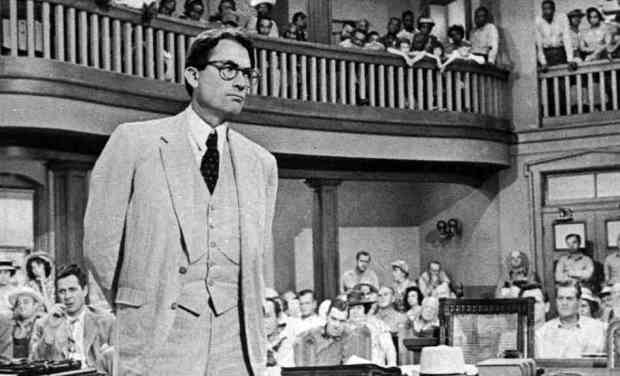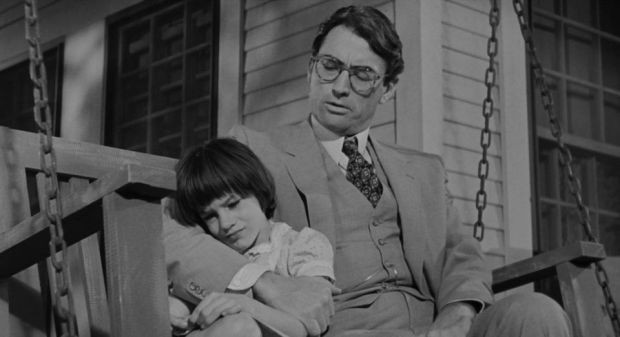I have recently had the chance of reading this novel, and I must say it has rightfully earned its position in the annals of literature as one of the greatest modern classics. If you haven’t read this novel, then I sincerely urge you to read it, and if you read it during your high school or middle school days as a part of a literary studies project, I would still urge you to read it again.
I am going to proceed with this post assuming that you have read To Kill a Mockingbird sometime recently or at least at a point in past from which you can still recollect the plot, characters and nub of the story. Also, this is not a review of the book, but an opinion piece on one of the primary characters and its reflection on the present era.
Although the book’s central character is a six year old girl, it is the principal character’s father (Atticus Finch) who I found to be the most inspiring figure, to an extent where I would consider him to be the greatest fictional hero of all time. I do comprehend that the universe of fiction is brimming with characters who have accomplished heroic feat, but for me Atticus Finch takes the honor, and there is an underlying reason behind this.
To Kill a Mockingbird is narrated by a six year old old, and it takes place in 1930s America, when the aberrations of prejudices against African-Americans were normalized and seen as a standard for a customary social structure by majority of white men and women.
Save for handful of characters such as central character herself, Scout, her brother, Jem; their widowed father, Atticus; and their affable neighbor, Ms. Maudi; all but entire white population of the town that the story is set in saw nothing wrong in racial injustice. An act of empathy or support to people of color would wreak revulsion of the officious community of white people.
So, as the story goes, Atticus Finch, a middle-aged lawyer, is appointed to defend a case for an African-American who has been falsely accused of violating a white woman.
To Kill a Mockingbird might have paved way for some of the Hollywood movies to scarcely set the character arc of their protagonists on Atticus Finch’s plot line. Avatar, Dancing With the Wolves and The Last Samurai follow a trope where the protagonist, who belongs to a certain powerful majority, fights for the OTHERS who are seen as enemies by his own folks, because he is motivated by the fact that his people are ready to put the minority populace in harm’s way just to satiate their fiendish interest and prejudices. Of course, there is a minor difference when it comes to these movies and the novel: unlike the protagonists from the aforementioned movies, Atticus Finch does not seem to be teetering in indecision whether he should stand for the one who has been wronged, but he sticks to his duty right from the beginning because he knows that every innocent has every right to seek justice in a fair world, and he sticks to it even when it rakes severance from some of his own people.

A still from the film adaptation of the novel.
Atticus Finch is not a stereotypical Gen Z hero: a genius, billionaire, playboy, philanthropist with a suit of iron armor, fighting diabolic monsters and aliens. He is just a common man with a typical job and a small family in a sleepy town.
What makes his heroism relatable is that Atticus Finch could be anyone, me, you, yes, you right there reading this blog post, your siblings, your parents, your children, your neighbor, anyone.
Atticus’s character has ostensibly full knowledge of what his conscientious action towards his duty will wreak, and he still proceeds to do what he is supposed to, a trait that many of us lack in today’s world teeming with iniquity. We are afraid that questioning people in power or the government’s incompetence will get us antagonized in the eye of public, and we will be labelled as anti-nationals; questioning religious charlatans will wreak the havoc of rabid, fanatic followers; questioning the rise of fascist powers will get us labeled as anti-state; questioning the unfair exploitation at the corporate house will get us tagged an contemptuous incompetent employees; basically we avoid going against bullies when we see them stomping on the weak, because we don’t want to be seen as someone who is against them, lest we see the bully wreak havoc on us.
Doing what is fair and right is seen as an act of naivety in today’s vulpine world. While racism, jingoism, xenophobia, casteism and classism is becoming a norm in majority in many parts of the world, shunning these prejudices is seen as an act of rebellion by the majoritarian establishments.
People who vehemently support these unjust prejudices seek the validation of the majority. Maybe the rebellion of one Atticus Finch to do the right thing may look inconsequential in influencing the society at large; however, if many come forward and do what Atticus Finch did, it could help inspire other majoritarians to stop being mere spectators and come forward to shed their outlook on how they view minorities.
We see a similar stamp of his objective’s purity in many real-life figures from the past. Take, Nelson Mandela, for example, or Gandhi, or Martin Luther King, Jr. There are many more examples of individuals from past and present on whom we could see the silhouette of Atticus Finch. They knew that the path to justice and fairness is paved with unspeakable malice of the oppressors, but they still strode the path of rectitude and fought for the oppressed.
To conclude, my take away from this classic literary piece and its essential character was a timeless reminder that heroism does not always have to be an ostentatious display of brawniness, that standing up for what’s right is not easy, but always necessary.
